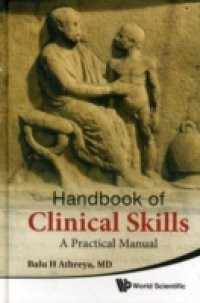Check out the author's website at http://www.clinicalcompetency.blogspot.comThere is growing acknowledgement of the importance of interpersonal and communication skills in the training of future physicians. Effective diagnostic and clinical management skills require competency in observing, listening, communicating, problem-solving and negotiating. In addition, the physician needs human relationship skills. It is apparent that a systematic curriculum is needed to teach these clinical skills to medical students and trainees and this handbook provides a practical guide.Each chapter in this book discusses one of the clinical skills in depth. A unique feature of this book is the use of concepts developed in several other disciplines. For example, ideas to learn listening skills are borrowed from industrial management literature. The other unique feature is the inclusion of practical exercises to learn and teach each of these skills. The Appendix outlines ideas on how to organize a course on clinical competency skills and includes a few exercises to start discussion groups.This practical manual is a resource for training of future physicians for competency in the art and practice of medicine. Ideas expressed in this book have been developed, tested and improved over a period of 25 to 30 years with input from trainees and medical practitioners.Contents:Transition to the 21st Century:IntroductionClinical Competence and New Directions in Medical EducationGetting to Know the Patient — Disease, Illness and Illness BehaviorClinical Skills:Listening Skills and Observational SkillsDiagnostic SkillsProblem Solving SkillsHuman Relation Skills:Communication SkillsPhysician–Patient RelationshipCaring and ConnectionLearning and Teaching SkillsPhysician, Know Thyself!Appendix:How to Organize a Course on Clinical Competency SkillsReadership: Academics, medicine professionals, medicine graduates and students in medical and nursing schools.

